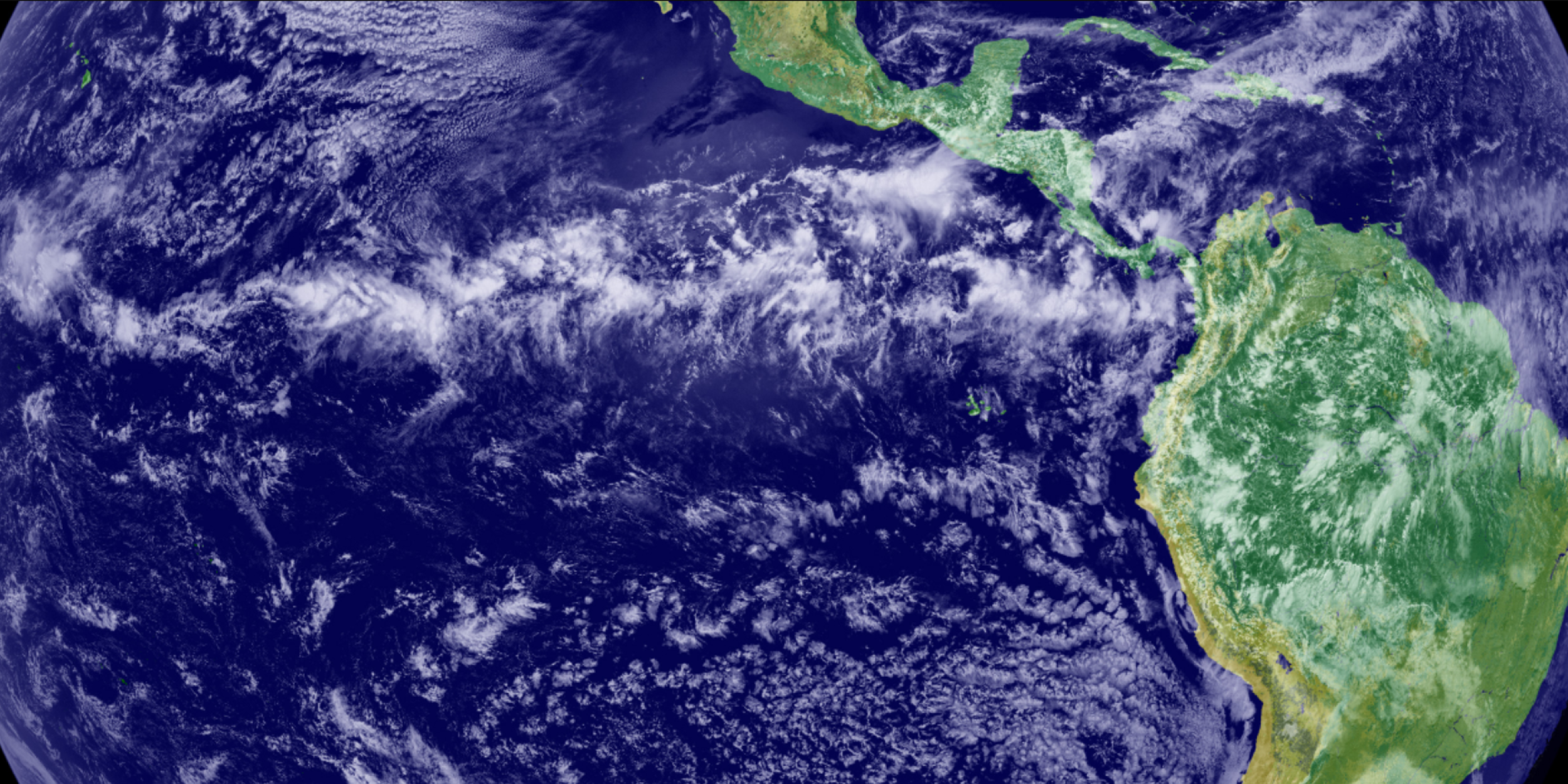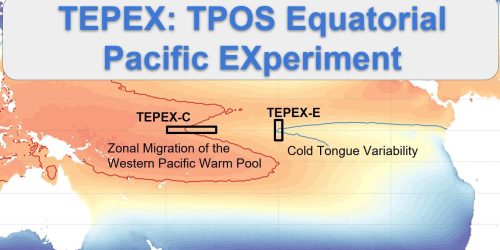The Intertropical Convergence Zone (ITCZ) is a well-defined zonally-oriented band of high precipitation, which strongly influences rainfall patterns in the tropics. Although it is centered a few degrees to the north of the equator, it meanders north-south depending on the season. ITCZ behavior is better studied and analyzed by long-term oceanic records, but observational data are still limited in temporal extent. Shallow-water corals can be more useful, as they provide seasonally-resolved archives of climate variability over the tropical ocean. CPO’s Climate Variability and Predictability (CVP) program-funded PI K.H. Kilbourne (UMD-CES), was part of an international group of researchers that further explored the usefulness of these archives.
The group used oxygen and carbon isotope data from a coral reef in northeastern Brazil to assess changes in both sea surface salinity (SSS) and ITCZ position. This dataset allowed researchers to present the first century-long coral isotopic record from the western tropical South Atlantic. The results of the study, published in Palaeogeography, Palaeoclimatology, Palaeoecology, suggest a major sea-surface freshening during the mid-20th century, and an ITCZ southward migration due to changes in Atlantic sea-surface temperatures.
For more information, contact Jose Algarin.










